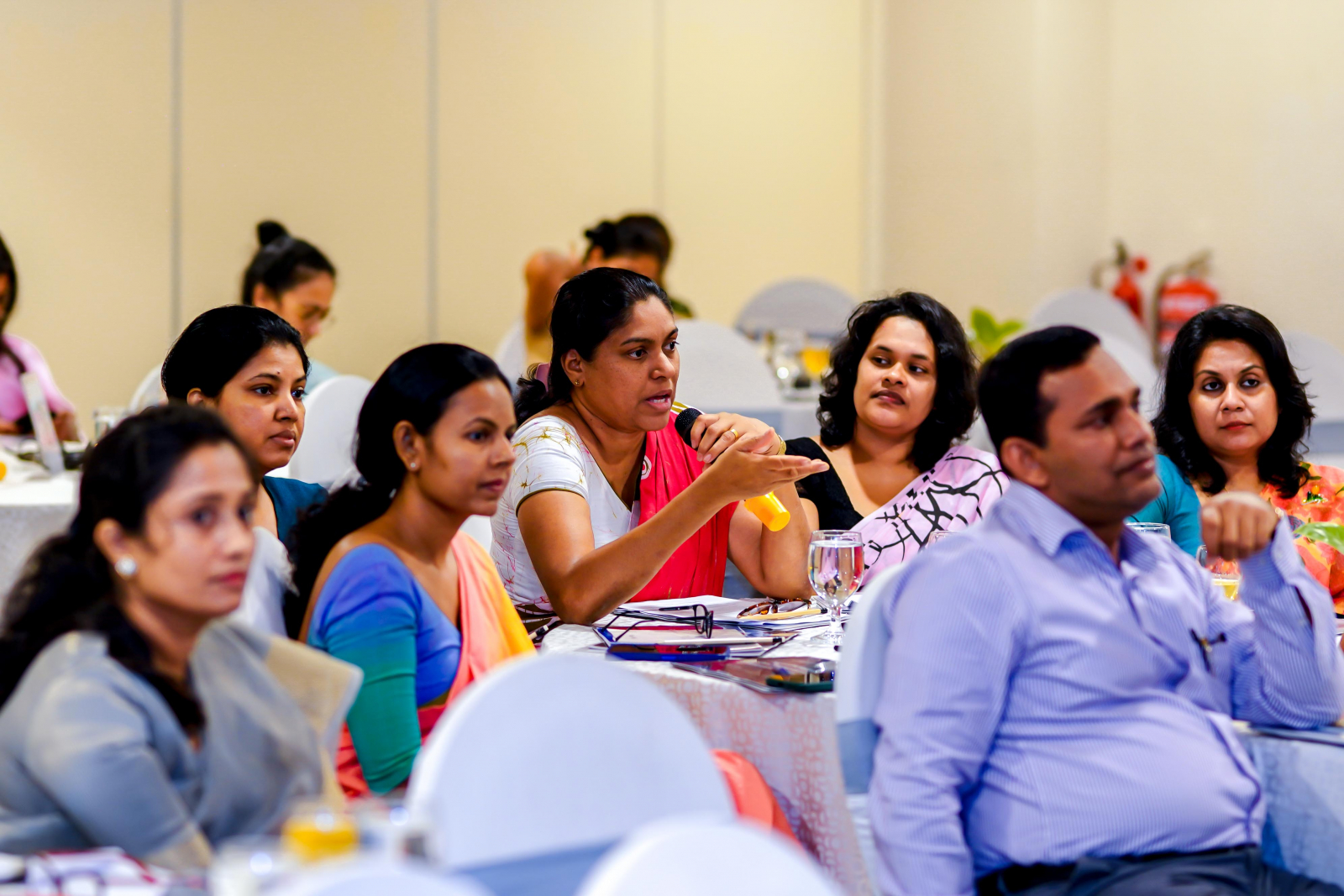
SHARE
Parliamentary research services play a crucial role in advancing democracy by both empowering legislators to make informed decisions and providing the public with credible information about the policy choices that affect their lives. Parliamentary research institutes can support lawmakers by providing non-partisan, factual and balanced assessments of the issues facing the legislature.
Over the last three years, Sri Lanka has suffered an economic crisis – including crushing sovereign debt burden and inflation topping 50 percent – that has sparked widespread protests and political upheaval. As the political body charged with policymaking and budget approval, the Parliament has a key role to play in delivering the country out of crisis. Making decisions on topics as diverse as public financial management, economic stimulus measures, and social policies requires access to reliable and accurate information, as well as input from diverse groups of citizens. The Parliamentary Research Division (PRD), established in 1991, needs to increase its capacity to offer high-quality research services on prioritized topics through the provision of background papers, research papers, policy papers, fact sheets, information notes and budget analysis.
To bolster the ongoing research efforts of the Parliamentary Research Division, from January 31 to February 2, 2024, NDI engaged with the PRD and committee staff in a technical assistance consultancy (TAC), a peer-to-peer engagement designed to provide technical support to the operations of partner parliaments. The TAC is organized by the House Democracy Partnership (HDP), a bilateral commission of the U.S. House of Representatives that works with parliaments around the world to support the development of independent and effective legislatures. Sri Lanka joined HDP as a member in 2016, and since then, the United States Congress, through HDP, has partnered with the Parliament of Sri Lanka to enhance legislative oversight, citizen engagement and e-governance. This engagement is a further testament to the effort of both legislatures to strengthen democratic institutions and advance parliamentary relations.
Over the three-day exchange, two legislative researchers from the U.S. Congressional Research Service (CRS) and the editor of the U.K. House of Commons Library interacted with research staff from the Sri Lankan Parliament. Representatives from the House of Commons Library provided valuable insight for the staffers, given the similarities between the Sri Lankan Parliamentary model and that of the U.K., fostering a deeper understanding and alignment of legislative practices. All three research divisions learned about each other's structure, operations and processes, enabling them to identify and analyze best practices. The discussions focused on topics including research report production through data collection, analysis, writing, and presentations, along with strategies in information sourcing and synthesis. They covered aspects such as managing requests coming from the parliament for research, developing a system to organize and process the request, prioritizing tasks and the review process before sharing the final product. Having a proper system to organize the proceedings of the research service is essential to ensure the efficiency and accountability of the institution. Delegates also exchanged insights into tools and techniques for analyzing policies and data for evidence-based products.
Since there are only ten staffers in the PRD providing research services to 225 members, much of the deliberation was focused on how to maximize delivery with limited resources. The group also identified additional challenges within the PRD, including that the staff is burdened with administrative tasks like translating materials across three languages (Sinhala, Tamil and English). Furthermore, effective communication and coordination are stymied by the lack of a centralized distribution platform such that staff must reach out individually to the members via messaging apps like Whatsapp and Viber.
At the end of the visit, participants brainstormed strategies to help make the Sri Lankan research service more efficient and effective. Among the ideas raised were: optimizing the request portal to manage and address requests efficiently; devising a system capable of recording both manual and virtual requests; leveraging support from external entities like academia and think tanks where feasible; strengthening relationships with committee staff to distribute the research workload; partnering with the Parliamentary communications team to disseminate information effectively; and and engaging in horizon scanning to anticipate and prepare for upcoming issues. The research officers indicated that they gained a better understanding of research methodologies, data analysis techniques, and report writing after the program. They also noted enhanced abilities in conducting policy analysis and offering evidence-based recommendations to Members of Parliament. Since the consultancy, parliamentary committees have reported that the research staff coordinated better with committee staff and that the quality of committee assistance has improved.
The program served as a valuable platform, facilitating knowledge exchange to enhance the capabilities of the research practices in Sri Lanka. NDI and HDP recognize the potential of continued collaboration with the Parliament of Sri Lanka to enrich democratic institutions further.
Author: Supun Dahal, NDI Democratic Governance Team
NDI's engagement with this program is implemented with support from the United States Agency for International Development (USAID).
Related Stories:
Bolstering Parliamentary Committees in The Gambia
Strengthening Constituent Engagement in Armenia
Partnering With the Disability Community and Parliament to Promote Inclusion
###
NDI is a non-profit, non-partisan, non-governmental organization that works in partnership around the world to strengthen and safeguard democratic institutions, processes, norms and values to secure a better quality of life for all. NDI envisions a world where democracy and freedom prevail, with dignity for all.


